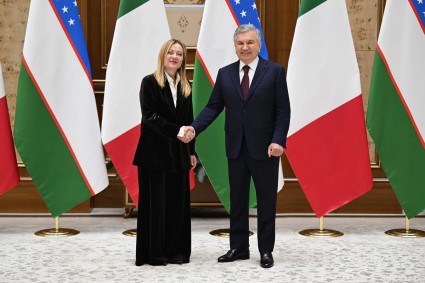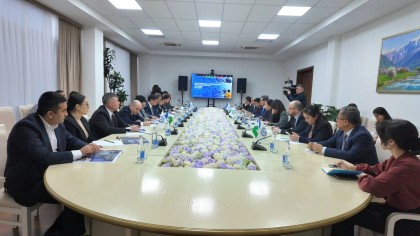Uzbekistan will adopt a Transport-Logistics System and Transit Potential Development Concept 2030, the Transport Minister Ilkhom Makhkamov told the Uzbekistan 24 TV channel Saturday.
According to him, a five-area action plan has been drafted, including facilitating international transportation.
“We must identify alternative corridors and directions for passing through problematic countries,” the Minister Makhkamov noted.
The following alternative transport corridors were voiced at the presentation:
- Turkmenistan - Iran - Turkey - European Union;
- Turkmenistan - Azerbaijan - Georgia - Europe;
- Uzbekistan (Andijan) - Kyrgyzstan (Osh, Irkeshtam) - China (Kashgar) (this corridor was planned to be developed jointly with China);
- Uzbekistan - Afghanistan - Pakistan.
In addition, it is planned to sign new international road transport agreements with Belgium, Armenia, Serbia, Norway, Croatia, Albania. Uzbekistan is also seeking to review agreements with China, Iran, Belarus, Ukraine, Moldova and Romania.
According to him, the president instructed to create alternative routes for goods exports and imports, as well as to facilitate passing through them by local freight carriers.
He also instructed to increase the volume of transit traffic via Uzbekistan. This figure should increase to 14.6 million tons (+13.7%) in 2025. The volume of transit cargo on the Belarus-Pakistan route is expected to increase up to 700 thousand tons (+200 thousand), China-Europe – up to 200 thousand tons (+50 thousand), China-Afghanistan - to 150 thousand tons (+80 thousand).
In the World Bank Logistics Index, the country improved its position from 118th place in 2016 to 88th place in 2023, and the goal is to climb at least 55th place by 2030.
Uzbekistan also intends to connect to the TRACECA system - the Europe-Caucasus-Asia transport corridor.
Moreover, the presentation included proposal to create a green corridors system, as well as achieve mutual recognition of cargo documents.
Electronic queue and online monitoring systems will be set up at Davut-ota, Gishtkuprik and Navoi border checkpoints.
During the presentation, it was also reported that the freight forwarding services market in Uzbekistan, which connect shippers and carriers, is estimated at $520 million, the bulk of which, 90%, has been taken over by foreign companies. In order to increase the share of local freight forwarders to 50%, they will be waived from paying VAT.














